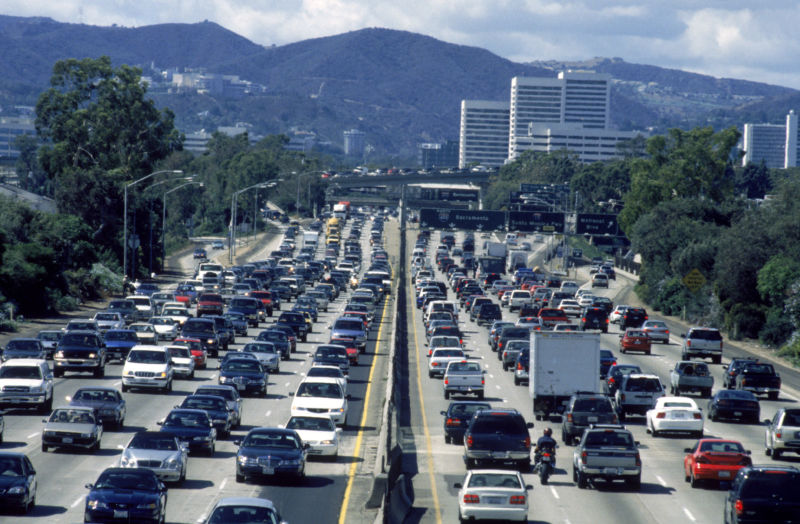
Four major automakers have reached an agreement with California to produce more fuel-efficient cars for the US market, despite efforts by the Trump administration to roll back emissions regulations.
Honda, Ford, Volkswagen, and BMW of North America all agreed to a voluntary framework that will reduce emissions through 2026, the California Air Resources Board (CARB) said Thursday.
The deal requires the automakers to improve their overall fleet’s average fuel efficiency by 3.7 percent per year, starting with the 2022 model year. It also promotes a transition to electric vehicles by giving companies that produce and sell more electric cars credits toward meeting that emissions standard, and by providing incentives for installing more emissions-reducing technologies.
“Few issues are more pressing than climate change,” California governor Gavin Newsom said in a statement. “I now call on the rest of the auto industry to join us, and for the Trump administration to adopt this pragmatic compromise instead of pursuing its regressive rule change. It’s the right thing for our economy, our people, and our planet.”
More than California
The Obama administration in 2012 adopted a fuel economy standard that would gradually increase the average miles-per-gallon rating for most cars to 54.5mpg by 2025 (about 40mpg under real world conditions). The Environmental Protection Agency finalized that standard in December 2016.
Like many regulations from the tail end of the Obama administration, though, the fuel efficiency rule had no fans in the Trump administration. EPA administrator Scott Pruitt kicked off a rulemaking process in 2018 to dump those standards and replace them with something weaker.
California fought back. For decades, the smog-prone state has had a waiver allowing it to set more stringent fuel-efficiency guidelines than federal law calls for. CARB, determined to maintain its own higher standards, filed suit.
For a time, the Trump administration was theoretically negotiating with CARB to search for a compromise position, but those talks, such as they were, collapsed in February.
California law is critical to carmakers because emissions regulations in California spread far beyond the Golden State’s borders. Most states can’t set their own fuel-efficiency guidelines; California is a special case. But the other 49 states can choose to adopt California’s stricter standards instead of the federal guideline, and at least 16 states have said they will back California’s emissions standard rather than support the federal rollback.
Ford, Honda, BMW, and Volkswagen are all among the 17 automakers that asked the Trump administration to negotiate with California to find a single, unified national standard.
Although the four companies agreed to stricter, voluntary terms with California, “a 50-state solution has always been our preferred path forward,” they said in a joint statement. “These terms will provide our companies much-needed regulatory certainty by allowing us to meet both federal and state requirements with a single national fleet, avoiding a patchwork of regulations while continuing to ensure meaningful greenhouse gas emissions reductions.”
CARB chair Mary D. Nichols echoed the sentiment, but she added a clear threat. “If the White House does not agree, we will move forward with our current standards but work with individual carmakers to implement these principles,” she said. “At the same time, if the current federal vehicle standards proposal is finalized, we will continue to enforce our regulations and pursue legal challenges to the federal rule.”
























